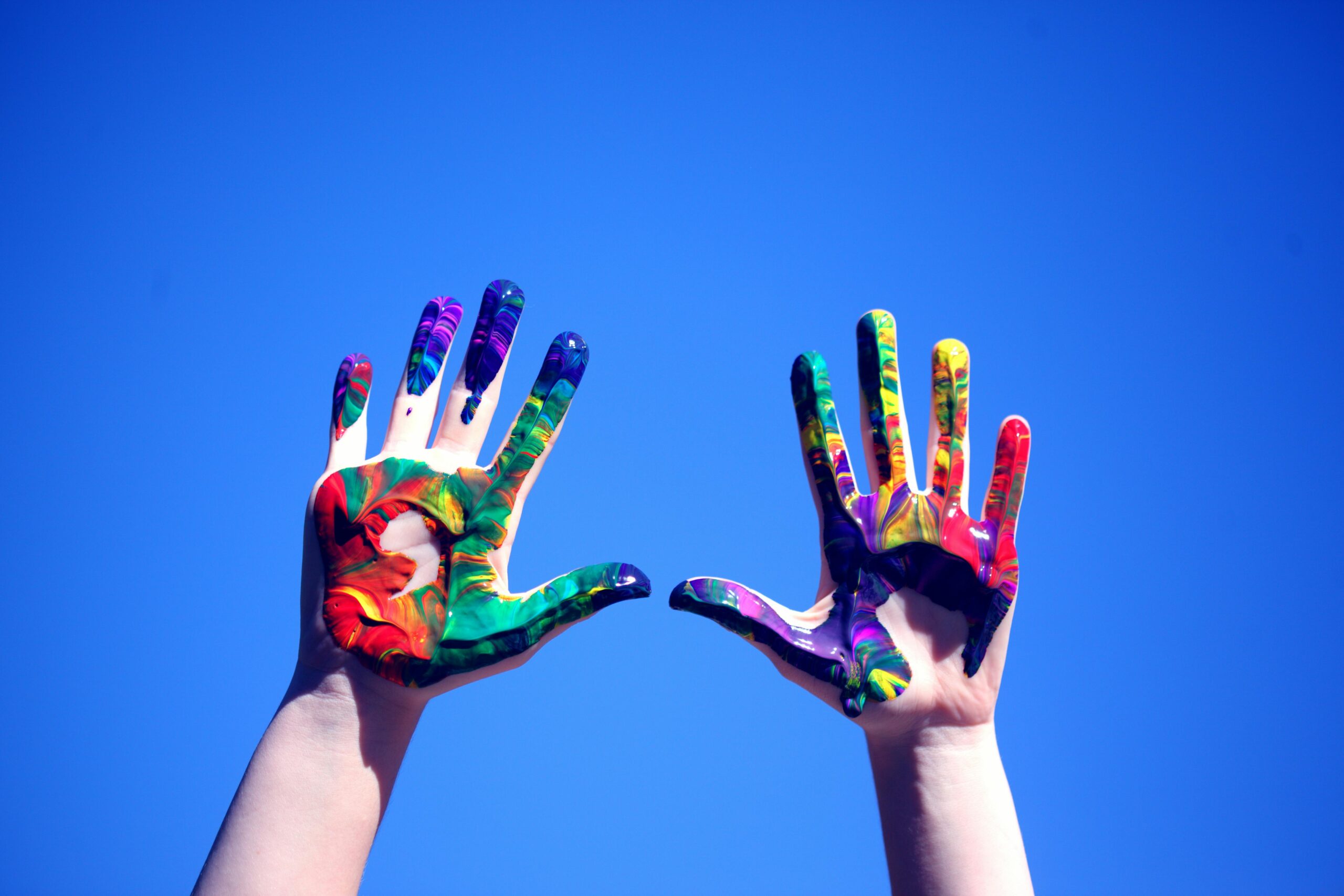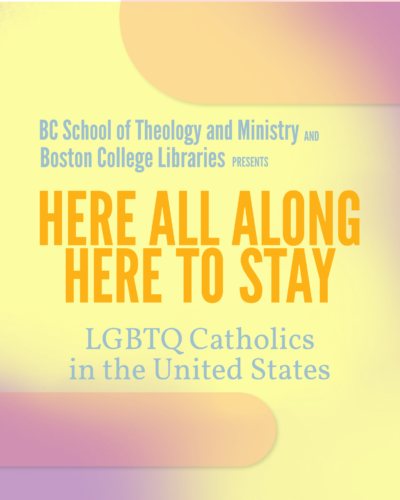About 40 years ago, when I was studying for ordination as a Dominican priest, I was invited to an annual conference on religion and spirituality in New York. We had a free afternoon and one of the other students, Lisa, asked if I wanted to go see a movie. It was a cold November day, so that sounded like a good idea.
Not long after we sat down in the theater, Lisa told me that she thought she was transsexual and that she was contemplating taking her own life. She said she had taken a lot of pills before joining me.
I was in my mid-20s and had never met a trans person. I didn’t even know exactly what “transsexual” meant. And although I was preparing for ordination to the priesthood, I hadn’t taken a course in basic pastoral care, let alone suicide prevention. I had no idea what to do. I knew I didn’t want Lisa to pass out or die in the theater, so I did what you’d do with someone who was trying to sober up from a really bad drink.
I was amazed that [trans Catholics] had kept their faith and stayed in the church despite its coolness and even hostility toward them.
“Let’s go for a walk,” I said, as though I knew what I was doing. We left the theater and started walking around Manhattan; we were probably outside for an hour or two, despite the cold weather. She told me about her anxiety and uncertainty about who she was. I think mainly she wanted someone to talk to, even though I didn’t have any advice to offer her.
I don’t think I ever talked to Lee about that afternoon again. I know he transitioned years ago and is now moving toward retirement after a successful professional life.
I encountered transgender questions many years later while I was working as an ethicist for the Catholic Health Association. We were dealing with one provision, or regulation, of the Affordable Care Act, known as Obamacare. This regulation would have protected people from discrimination on the basis on gender identity. Catholic hospitals do not offer direct sterilizations, and we weren’t sure whether this new regulation would require us to perform transition procedures that resulted in sterilization. If it did, it would put our providers in a quandary. I got assigned to work with our advocacy staff to figure out how we in Catholic health care would deal with that new regulation.
I soon learned that health care for trans persons was not just a legal issue. It was also a clinical issue, an ethical issue and a spiritual care issue. Unfortunately, it has become a political issue as well, as trans people and their needs are used by politicians as an example of a “woke” liberal culture that threatens children.
I learned a lot during those years. I met a number of trans persons, mostly through introductions by Sister Nancy Corcoran, C.S.J., who works with trans people and their families, and through Sister Luisa Derouen, O.P., who has been a spiritual guide for trans persons for many years. Many of those people were Catholics. I was amazed that they had kept their faith and stayed in the church despite its coolness and even hostility toward them.
Despite the obvious differences in our life stories, I began to relate to [trans people] as persons rather than as some third kind of being. My prejudices started melting away.
I attended a number of gatherings of the World Professional Association for Transgender Health. There, I met more trans people—some Catholic, some of other denominations or faith traditions and some of no faith at all. I met trans physicians, lawyers and scientists, and I heard them speak candidly about their own experiences and the challenges they faced. At my first W.P.A.T.H. meeting, I was seated at a large round lunch table with six or eight people. I felt like an outsider, or at least like a visitor in a very strange new world.
As I sat there and began to talk to my lunch companions, I noticed two things. Until then, I thought every trans person would be immediately recognizable. Yet, at that table, I did not know who was trans and who was not. Only if one person referred to their transition did I know.
Second, I realized that we were talking about the same things I would talk about with any group of strangers: the weather, the political scene, vacation plans, family and children. I began to relax as I realized the people at the table were in many ways just like me. Despite the obvious differences in our life stories, I began to relate to them as persons rather than as some third kind of being. My prejudices started melting away.
I worked with many leaders in Catholic health care as well as with various church groups, including the U.S. bishops. Most of them knew even less about the trans experience than I did. I found them hung up on the idea of “gender ideology,” which they saw as a dangerous cultural movement that threatened to erase all gender differences and give people permission to choose their gender at will.
Most of these American church leaders did not (and still do not) understand that while some gender ideologies may be inconsistent with Catholic teaching, LGBTQ people are not ideologies. They are persons who deserve our care and respect as children of God discovering the truth about themselves.
LGBTQ people are not ideologies. They are persons who deserve our care and respect as children of God discovering the truth about themselves.
I have come to see that we should not just tolerate LGBTQ Catholics. Rather, we need them, and we should welcome them. I say this for several reasons.
Knowing God’s plan
LGBTQ people help us understand God’s plan. We were not created by accident. God created us with a plan and gave each of us a purpose. Part of God’s plan is known to us through Revelation, especially the Bible. But Catholics believe that God’s plan can also be known through observation and reflection on human nature. The more we understand what it means to be human, the better we understand God’s providence.
At one time, we thought that white males constituted an adequate sample of human nature. Today we know better. If we are going to grasp the fullness of God’s plan, we have to know the fullness of human nature—namely, male and female, black and white and brown, European, North American, African and Asian, cisgender, transgender and everything in between.
Luke Timothy Johnson, a Scripture scholar at Duke University, says that because the Incarnation is God’s most definitive act of revelation—God revealing God’s self by becoming a person—we have to take our bodies seriously and see them as a source of knowledge about the divine plan. In his book The Revelatory Body, Johnson applies his theory of body-as-revelatory to “exceptional” bodies:
The terms male and female have limitations: they don’t by any means cover all the variety of human sexual experience and expression and when the terms are imposed absolutely or normatively they can also become tyrannical: they can suppress and distort sexual experience and expression that may escape the neat frame of the abstraction but are nevertheless fully human and, I would argue, possible pointers to what God is up to in the world.
Johnson adds that “rather than imposing the abstract classifications of male and female in a wooden and even oppressive way … this approach asks first what we can learn about ourselves and what we can learn about God’s creative inventiveness.”
Most of us experience sex as primarily binary, but that does not exhaust the possibilities. LGBTQ people help us understand the diversity and the mystery of human sexuality. We need to carefully discern which of these experiences contribute to human fulfillment, but we also need to ask what God is telling us through this diversity.
LGBTQ people help us understand the diversity and the mystery of human sexuality.
Discerning providence
Gender variant persons have had to discern God’s will in a way most of us have not considered. Faced with a painful internal conflict, they have had to ask “Why?” and “Who am I?” They have had to learn gradually that perhaps through a biological accident, God made them as they are. And they had to find grace in that fact. Their faithfulness against such profound questions has made a deep impression on me.
Holy transitions
Transgender persons also teach us how to make holy transitions. In 1980, the popular consultant William Bridges published a book called Transitions: Making Sense of Life’s Changes. I am reading it now as I transition from full-time work to retirement, and from the highly productive time in my life to whatever comes next (including death).
My transition is pretty routine, but I have been encouraged by trans people who have had to discover a totally new path and existence. My transition does not involve hormones or surgery, but it is still real. I am aware each day that my life is not static, that I am not just created “in the image of God,” but am called “into the image of God” as I age.
I have the opportunity to understand more fully why God created me and what my purpose in life is. LGBTQ people help us when we are faced with life’s most difficult transitions—death, divorce, serious illness. How do we accept these changes and the graces that inevitably accompany them?
The Gospel from the margins
LGBTQ people are a very small minority of the population, and they know what it is like to hear the Gospel from the margins. They have had to hide their own lives for fear of persecution or rejection. While others leave the church (or religion altogether) because they cannot handle the inconsistencies, many have stuck with the church despite its ambivalence or hostility. They are a daily witness to the “wideness of God’s mercy” when many others would like to keep it, so to speak, straight and narrow.
[LGBTQ people] are a daily witness to the “wideness of God’s mercy” when many others would like to keep it, so to speak, straight and narrow.
I once had the privilege of celebrating Mass at a side altar in St. Peter’s Basilica during a pilgrimage to Rome. The reading that day, from the Acts of the Apostles, was the story of Philip and the Ethiopian eunuch (8:26-40). It occurred to me that this story is probably the closest thing to a description of the trans experience anywhere in the Bible.
Eunuchs were recognized as different; they had a distinctive appearance and they had specific roles to play in society. They were on the margins. So it was remarkable that the Spirit directed Philip to approach the eunuch and, second, that Philip interpreted the Scriptures for him and baptized him on the spot! This story is an example of the ever-widening circle of salvation that we see in Luke-Acts.
So I want to thank all of you in the Catholic LGBTQ community for staying faithful, for asking questions and for helping us see that God’s grace shapes and perfects lives in ways we never imagined.




